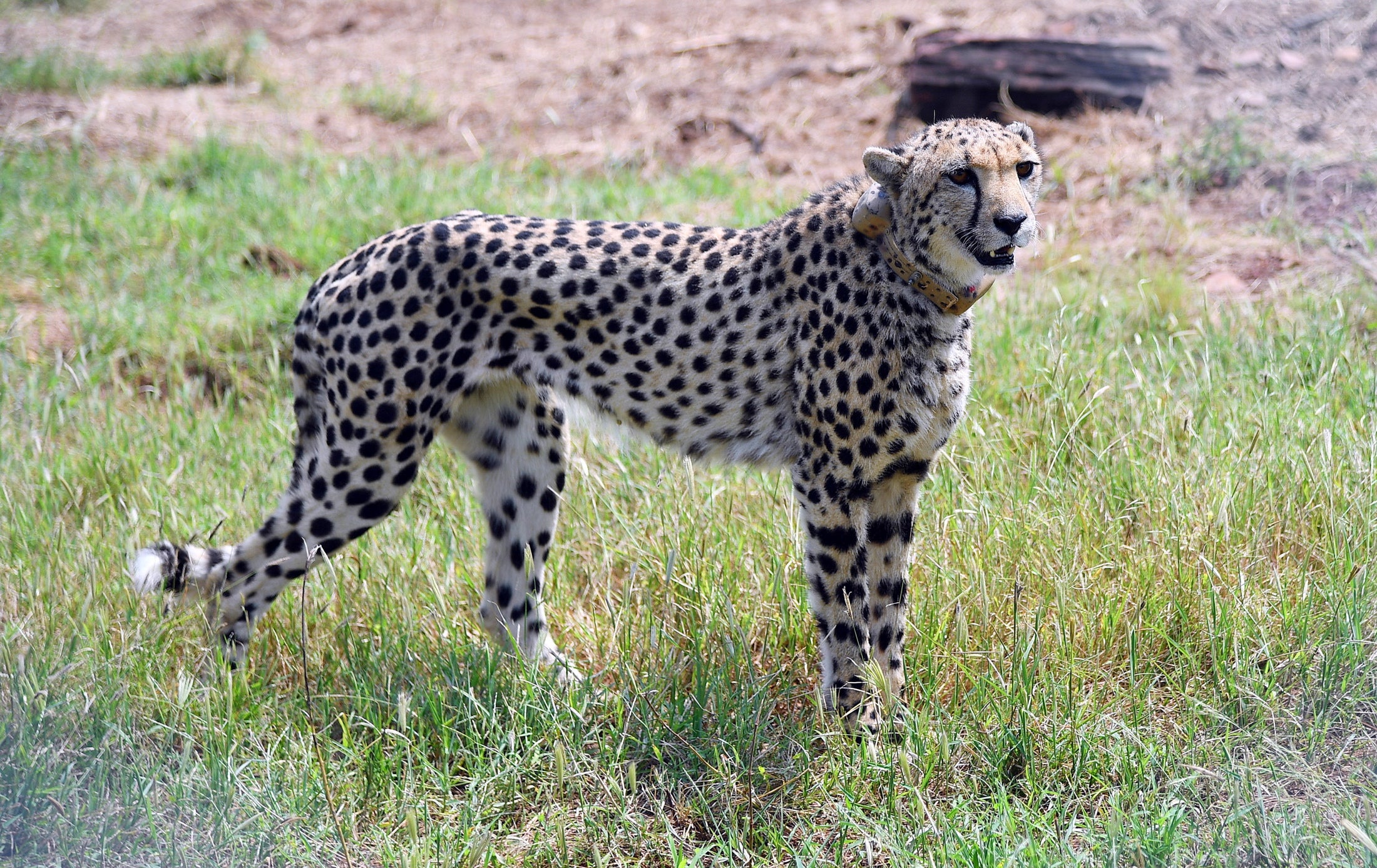Third cheetah dies in India reintroduction project due to mating injuries: ‘Impossible to interfere’
Latest cheetah death spells yet another blow for ambitious Project Cheetah programme

Your support helps us to tell the story
From reproductive rights to climate change to Big Tech, The Independent is on the ground when the story is developing. Whether it's investigating the financials of Elon Musk's pro-Trump PAC or producing our latest documentary, 'The A Word', which shines a light on the American women fighting for reproductive rights, we know how important it is to parse out the facts from the messaging.
At such a critical moment in US history, we need reporters on the ground. Your donation allows us to keep sending journalists to speak to both sides of the story.
The Independent is trusted by Americans across the entire political spectrum. And unlike many other quality news outlets, we choose not to lock Americans out of our reporting and analysis with paywalls. We believe quality journalism should be available to everyone, paid for by those who can afford it.
Your support makes all the difference.A cheetah has died in India after it suffered injuries during a mating interaction with two male cheetahs that turned violent, making it the third such death within 50 days.
This latest cheetah death spells yet another blow for the ambitious programme, known as Project Cheetah, undertaken and widely publicised by the country’s prime minister Narendra Modi to revive the population of the world’s fastest animal that had gone extinct in India 70 years ago.
Officials monitoring female cheetah Daksha in central Madhya Pradesh state’s Kuno National Park, where the programme is taking place, said any intervention to prevent the death was “practically impossible”.
Daksha was found injured by a monitoring team at around 10.45am on Tuesday, the Indian Ministry of Environment, Forest and Climate Change said in a statement.
“Treatment was done by the veterinarians but said Cheetah died tragically at 12 noon the same day. Prima facie, the wounds found on the female cheetah Daksha seem to have been caused by a violent interaction with the male, during the courtship/ mating attempt,” the ministry said.
“In such a situation, the chances of intervention by the monitoring team are almost non-existent and practically impossible. The autopsy of the dead female cheetah (Daksha) is being carried out by the veterinary team as per the protocol,” the ministry said in a statement.
Such a display of violent behaviour by male coalition cheetahs towards female cheetahs during mating are common, according to the statement.
Officials said the decision to allow Daksha to meet and mate with the two males was taken by Indian and South African wildlife officials along with experts on 30 April.
A day later, the gate between the enclosures housing the three cheetahs were opened.
The male cheetahs entered Daksha’s enclosure on 6 May. It is not immediately clear when the injuries were caused.
Two of the cheetahs that died, including the current one, were borrowed from South Africa. Another animal that died was from Namibia.
The first death was reported this March, of a six-year-old cheetah. The death was due to renal failure emerging from prolonged illness observed since late January.
The second casualty had come in late April, after an adult male of unknown age succumbed to acute neuromuscular symptoms and died within a week of being released from a quarantine camp into a larger acclimatisation camp.
The project, however, also had a win this March in the form of the historic birth of four cubs, the first cheetah births on Indian soil in decades.
Indian authorities decided to initially quarantine all of the 20 cheetahs brought for the project into enclosures to ease their intercontinental shift and gradually release them into the wild.
On Monday, the Modi administration had claimed that, despite the previous two deaths, the rest of the cheetahs brought to India were doing well.
India first bought a tranche of eight cheetahs last September. They were personally released by Mr Modi in Indian soil amid heavy fanfare. A second batch of 12 cheetahs was released in February this year.
The deaths have raised questions about the Indian government’s plans, which have been contested by wildlife conservationists as they involved introducing a non-native specie from Africa to south Asia.
The sub-species is similar to, but distinct from, the critically endangered Asiatic cheetah that is now only found in Iran.
“The other cheetahs have been closely monitored and none of them has shown any similar symptoms,” the ministry claimed on Monday, adding that the rest of the cheetahs “appear to be perfectly healthy, are hunting for themselves and displaying other natural behaviours”.
“It is not surprising that a project of this magnitude and complexity would face many challenges,” the ministry claimed.




Join our commenting forum
Join thought-provoking conversations, follow other Independent readers and see their replies
Comments